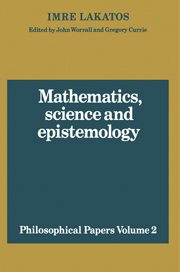Numerical Cognition and the Epistemology of Arithmetic
Arithmetic is one of the foundations of our educational systems, but what exactly is it? Numbers are everywhere in our modern societies, but what is our knowledge of numbers really about? This book provides a philosophical account of arithmetical knowledge that is based on the state-of-the-art empirical studies of numerical cognition. It explains how humans have developed arithmetic from humble origins to its modern status as an almost universally possessed knowledge and skill. Central to the account is the realisation that, while arithmetic is a human creation, the development of arithmetic is constrained by our evolutionarily developed cognitive architecture. Arithmetic is a sophisticated cultural development, but it is ultimately based on abilities with numerosities that we already possess as infants and share with many non-human animals. Therefore, arithmetic is not purely conventional, an arbitrary game akin to chess. Instead, arithmetic is deeply connected to our basic cognitive capacities.
- Provides the first book-length account in which a coherent epistemological theory is presented and analysed in philosophical terms
- Presents a detailed development of the theory in terms of both the ontogeny and phylogeny and the cultural history of arithmetical knowledge
- Explores arithmetical knowledge from an empirically-informed point of view, constructing an empirically supported and philosophically coherent epistemological theory of arithmetic
Reviews & endorsements
‘This book is a refreshing, genuinely interdisciplinary exploration of cognitive and epistemological issues concerning numbers. Pantsar argues for the controversial thesis that arithmetic, although rooted in our shared cognitive abilities, is a cultural product. He then explores this thesis's various repercussions, tackling in a novel way traditional philosophical problems about mathematics.' Silvia de Toffoli, Scuola Universitaria Superiore IUSS Pavia
Product details
March 2024Adobe eBook Reader
9781009468879
0 pages
This ISBN is for an eBook version which is distributed on our behalf by a third party.
Table of Contents
- Preface
- Introduction: a fractured landscape
- Part I. Ontogeny:
- 1. Proto-arithmetical
- 2. Acquisition of number concepts
- 3. Enculturation
- Part II. Phylogeny and History:
- 4. The phylogeny and cultural history of number concepts
- 5. The Development of arithmetic
- 6. Cumulative cultural evolution
- Part III. Epistemology and Ontology:
- 7. Conventionalism and intersubjectivity
- 8. The character of arithmetical knowledge
- 9. Ontological considerations
- Conclusion
- Bibliography
- Index.



